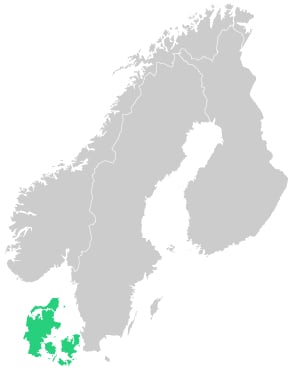In May 2020 the Danish Parliament adopted the government's proposed control package, that includes tools for tackling corporate and accounting fraud. The new initiatives mean that it will become more difficult for those responsible for financial fraud to hide behind false identities, straw men and fictitious addresses. The bill is a consequence of fraud cases in recent years, and aims to support faster and more targeted responses to financial fraud.
In this article, we review the main changes to the Companies Act resulting from the new control package. The corresponding changes to the Danish Financial Statements Act, the Danish Act on Approved Auditors and Audit Firms etc. will not be reviewed in this article.
The changes reviewed below will come into force on 1 January 2021.
Storage of company documents
In order to allow a fast response to financial fraud, the company's executive board will now be responsible for ensuring that company documents are stored safely for 5 years from the end of the financial year to which the documents relate. It must be possible to find and make the documents available to public authorities without delay. If the company documents are not stored electronically, they must be stored in paper form in either Denmark or another Scandinavian country.
'Company documents' refers to documents and annexes that a company prepares according to the law, including statutes, minutes and statements. In the future, breaching these provisions may lead to the compulsory dissolution of the company.
If a company is dissolved, the most recently registered executive board must ensure that company documents are stored in accordance with the new rules. When the executive board changes, the previous executive board must ensure a handover to the new executive board.
Control measures
With the introduction of the new control package, the Danish Business Authority is authorised to carry out registration checks for reports and to identify reports for manual processing under the Companies Act. The Danish Business Authority will also be able to demand that reports from companies are accompanied by a statement from a lawyer, accountant or expert, in order to document the accuracy of the information.
In terms of registering individuals in the company register, the Danish Business Authority has the option of requiring additional verification of the person's identity and, in extreme cases, request a personal appearance at the Danish Business Authority or at Danish embassies abroad.
At the same time, the Danish Business Authority may refuse to register a member of the executive board, or deregister a person from the CVR register if there is any doubt as to the relevant member's management of the company. This relates to an addition to the Act – that members of the company's executive board must be individuals who actually serve as members of management. This is to safeguard against the deployment of straw men who are deliberately or through exploitation included as members of the executive board without acting as such.
In addition, the Danish Business Authority is also authorised to conduct inspections of registered offices. An inspection of a registered office involves the authority visiting the Company at the registered office to ascertain whether the company can in fact be contacted at the registered address. If the Danish Business Authority learns that the company cannot be contacted at its registered office, the authority has the option of referring the company for compulsory dissolution.
Finally, the Danish Business Authority may ask companies to submit proof that a registration has been lawfully made for up to 5 years after the date of registration. At the same time, the Danish Business Authority now has the option of publishing control cases on its website, including the names of individuals and the company.

